- Administrator
- Albums and Singles
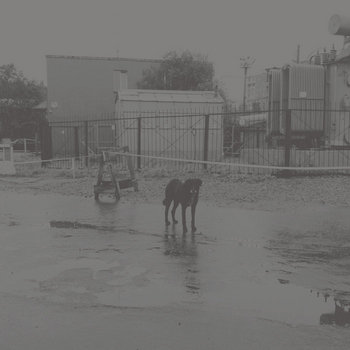
"Grouper's Liz Harris has today (February 8) released an album under a new moniker, Nivhek. After its own death / Walking in a spiral towards the house is out now on Yellow Electric.
Recorded using Mellotron, guitar, field recordings, tapes, and broken FX pedals, the album was developed during two residencies Harris spent in Azores, Portugal and Murmansk, Russia, as well as at her home in Astoria, Oregon."
-via Fact
Read More
- Administrator
- Albums and Singles
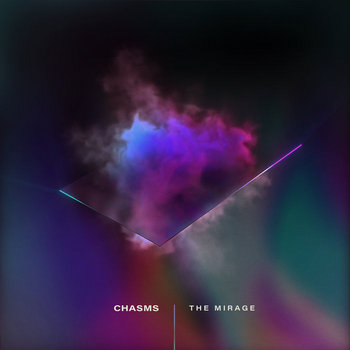
Chasms was formed in 2011 by Jess Labrador and Shannon Madden. Following 2016's On the Legs of Love Purified and the recent "Divine Illusion" single, The Mirage pushes the band's ethereal sound into the murky depths of dub. Marking a sonic shift for the project, The Mirage finds the duo trading in chaotic bursts of noise for understated minimalism that's still characteristically melancholic and potent with emotion. Labrador's drum production is as deft as ever with an expanded range of electronic samples and tape-delay-induced polyrhythms. Layered with Madden's persistently dubby bass, Labrador's sparse guitar and gliding soprano float above a labyrinth of hypnotic sequences. These dub-laced dirges signify growth within the band, heard in their command of repetition, space, and effects to build a pervasive mood that's often utterly heartbreaking.
The duo’s second LP for the Felte label, The Mirage was conceived following major upheaval in the pair’s lives, including the loss of Madden's brother and a number of the band's friends in Oakland’s Ghost Ship warehouse fire in 2016. Compounded with the dissolution of a marriage, and leaving San Francisco after more than a decade to relocate to Los Angeles, the album is an exploration of grief and the multi-faceted heartbreak that follows such events. What we think we see, what we think we know to be true, how we think life will turn out, the plans we make – all reduced to an illusion when someone you expected to be alive tomorrow is gone, when plans fail, when the mask is removed, and you are left simply to be.
Mixed by Josh Eustis (Telefon Tel Aviv) and mastered by Rafael Anton Irisarri, The Mirage tells candid narratives of a heavy heart but does not wallow in despair. At times, the album even offers danceable moments as in the entrancing, textural "Every Heaven in Between" with its restless techno and house-inspired four-on-the-floor beat. Sliding guitar chords and a smoky bass line wade between rhythmic pulsing and a booming kick in the narcotic "Shadow." A transformative assemblage of songs, The Mirage is a powerful reflection on the events that shatter and shape our lives.
More information can be found here.
Read More
- Administrator
- Albums and Singles

Akira Rabelais’ years-in-the-making new album CXVI features collaborations with Harold Budd, Ben Frost, Biosphere, Kassel Jaeger and Stephan Mathieu, among others. It unfurls a quietly breathtaking, dreamlike sequence of events where early music meets a prism of shoegaze, ASMR, classical and textural sound design - huge recommemdation if yr into Felicia Atkinson, the GRM, Morton Feldman, Stephan Mathieu, Deathprod, Harold Budd...
Set to be received as Rabelais' magnum opus, CXVI finds the Hollywood-based composer challenging his usual working methods, pushing himself to refresh binds with longterm collaborators such as Harold Budd and Stephan Mathieu and forge new relationships with like-minded craftsmen such as Geir Jenssen (Biosphere), while also finding a new vocal muse in Karen Vogt of Heligoland, and also coaxing the recorded debuts of his friend Mélanie Skribiane, and filmmaker/photographer Bogdan D. Smith. The result of their time-lapsed endeavours is a record of divine subtlety and poignant patience, rendered with a mirage-like appeal.
Opener "Which Alters When It Alteration Finds," beautifully segues from a prickly bouquet of keys and lovebite-distortion penned with Ben Frost to a reverberant, spine-freezing piano coda from Harold Budd, before "Which Alters When It Alteration Finds" smokily gives way to the sylvan shadowplay of the album's masterful centerpiece, "Star to Every Wandring Worth's Unknown," where Mélanie Skribiane reads from Max Ernst's "la femme 100 têtes" against an exquisite veil of strings and keys realized by Akira with the GRM’s Kassel Jaeger a.k.a. François Bonnet.
The 3rd part of the album only becomes more sparse and isolationist, as Karen Vogt's plainsong gives way to the tremulous, icy timbres of Akira's processed guitar strokes, originally written for Cedrick Corliolis' Tokyo Platform soundtrack, before the final side of "If Error and Upon Me Proved" finds Akira pushing Geir Jenssen’s (Biosphere) synths into the red, emphasizing a romantic soreness that turns into crushing noise, before Bogdan Smith's whispered vocal melts into an ancient, arcane air inscribed to 78rpm vinyl by Stephan Mathieu and then sweetened, re-incorporated by Akira as the album's stunning closing passage.
Riddled with bedevilling detail and utterly timeless in its scope, CXVI is a disorientating opus you’ll want to undergo over and again, for our money one of the great quiet albums of recent years.
More information can be found here.
Read More
- Administrator
- Albums and Singles
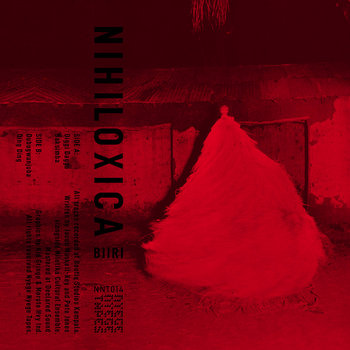
Nihiloxica's highly anticipated new EP featuring 4 new tracks of Bugandan percussive experimentation. Comprised of four percussionists, one kit drummer combined with an analog synth player. Recorded live in single takes at Boutiq Studios in Kampala, Uganda between October- December 2018.
More information can be found here.
Read More
- Administrator
- Albums and Singles

This recording is released in 3 formats -
1.) 23-track download
2.) CDr + 23-track download
The CDr contains a 46 minute track ("The π Key") which will not be available for download. This item is released in an edition of 25.
3.) The π Key - Deluxe Edition
WOODEN KEY + ANTIQUE 6" RECORD HOUSED IN SIGNED AND NUMBERED BESPOKE COVER + CDR + 23 TRACK DOWNLOAD
Each individual CDR is unique to each order as it contains the 46 minute track ("The π Key") plus the two tracks from the 6" record included in your package. This item is released in an edition of 23.
The Geometry of Social Deprivation is constructed from samples and manipulated sounds garnered from twenty-three 6" shellac records from the 1920's.
Each track contains a blend of loops and sampled fragments constructed from one record using the sound found on both the A and B sides. Each track is created from a different record. No additional instrumentation has been added.
This sometimes soft and ambient but challenging and abstract 8-hour suite of crackling, dusty and forgotten sounds of yesteryear has been designed to be played as a functional piece of music, to while away the hours as you go about your daily routine... a faint drone in the background or a suffocating, all encompassing sonic assault. Equally it can be utilized as an aid to spend your evenings "researching" a field of your choosing.
More information can be found here.
Read More
- Administrator
- Albums and Singles

Sound In Silence is happy to announce the addition of Tim Linghaus to its roster of artists, presenting his new album entitled About B. (Memory Sketches B-Sides Recordings).
Tim Linghaus is a musician and composer based in Cuxhaven, Germany, who creates his compositions blurring the lines between modern classical and ambient soundscapes. Since 2016 he has released an EP in 2016 on Moderna Records and an album in 2018 on Schole and 1631 Recordings.
About B. (Memory Sketches B-Sides Recordings) is a wonderful collection of thirteen new unreleased tracks in conjunction with four reworked versions of tracks from his highly acclaimed debut album which was released last year. It is in line with his debut album as all tracks were recorded around the period of the Memory Sketches sessions, trying to preserve particular personal memories in form of music. The album’s instrumentation is centered on wistful piano lines, warm synth arpeggios and layers of swirling drones, enhanced by cello, violin and saxophone performances by Sebastian Selke of CEEYS, Jean-Marie Bø and Tobias Leon Haecker, while field recordings and other sounds, like vinyl crackles and subtle electronics, perfectly fill the background atmospherics.
Mastered by George Mastrokostas (aka Absent Without Leave), giving an intimate warmth to its sounds, About B. (Memory Sketches B-Sides Recordings) is an album full of gorgeous textures and stunning atmospheres, highly recommended for fans of Nils Frahm, Ólafur Arnalds and Max Richter.
More information can be found here.
Read More
- Administrator
- Albums and Singles

Sound In Silence is proud to welcome The Gentleman Losers to its family, presenting their new album Make We Here Our Camp Of Winter.
The Gentleman Losers is the experimental musical group of brothers Samu and Ville Kuukka, based in Helsinki, Finland. Since their formation in 2004, they have released three albums and one EP on labels such as Büro, City Centre Offices, Grainy Records and Standard Form. All their releases have gained high worldwide praises and placements on several year-end lists. They have contributed their music to various compilations, including an original track for Duskscape Not Seen compilation on Nothings66 label, along with the likes of Helios and Stafrænn Hákon, amongst many others and a feature on Nils Frahm’s LateNightTales compilation album. They have also written some commissioned music, including a film score, done remixes for the likes of Bibio, Epic45, Will Samson and others, and released an EP with their synth pop side-project Lessons, along with singer Patrick Sudarski, on Sinnbus label.
Make We Here Our Camp Of Winter is The Gentleman Losers’ fourth full-length album, featuring eight new compositions, most part of which was written during the summer of 2018 at a cabin by a lake in southern Finland. All in all, this is a much more spontaneous record than their earlier ones. After being stuck with the previous album for many years, the Kuukka brothers wanted to make a simple, quiet album this time around. It was all much unplanned, but as the songs were nearing completion, it was clear that there was a coherent whole there, a feeling. They felt that this album has a sense of introversion to it, a feeling of winter approaching, and of holing up to wait for the seasons to change.
Make We Here Our Camp Of Winter is a sublime album that intelligently mixes elements of ambient, lo-fi, electronica and post-rock. Recorded using both vintage analogue equipment and modern production techniques and with a sound palette that blends layers of haunting guitar melodies, slowly picked lap steel guitar, warm analogue synths, subtle bass lines, minimal beats and spoken word, it’s an emotive album that showcases the trademark sound of The Gentleman Losers at its best.
More information can be found here.
Read More
- Administrator
- Albums and Singles

Sound In Silence is happy to announce the addition of Umber to its roster of artists, presenting his new album This Earth To Another.
Umber is the solo project of multi-instrumentalist Alex Steward, based in Leicestershire, UK. For about a decade, he has been producing his sublime music, inspired by his life in the heart of the English countryside, having done several wonderful releases, either on labels such as Oxide Tones and Hawk Moon Records, or self-released, including an album, an EP, a single and a split EP with Drops (aka Liam J Hennessy). He has also released a remix album, including remixes by Stray Theories, Row Boat, Gavin Miller and Circadian Eyes, amongst others, while he has also done remixes for worriedaboutsatan and Ghosting Season, and has collaborated with artists such as Tom Honey (Good Weather for an Airstrike) and Sophie Green (Her Name Is Calla).
This Earth To Another is Umber’s second full-length album, five years since his debut came out. Utilizing both electric and acoustic instrumentation, including dreamy electric guitar melodies, nostalgic acoustic guitar arpeggios, soothing synth layers, glacial drones, gentle beats and subtle electronics, Umber creates an album full of shimmering ambient textures and ethereal soundscapes, with hints of atmospheric post-rock and slow moving electronica.
With the finishing touch on its evocative sound applied by the carefully done mastering of George Mastrokostas (aka Absent Without Leave), This Earth To Another radiates a deep majestic warmth that will appeal to anyone moved by the music of artists such as Helios, Hammock and Epic45.
More information can be found here.
Read More
- Administrator
- Albums and Singles
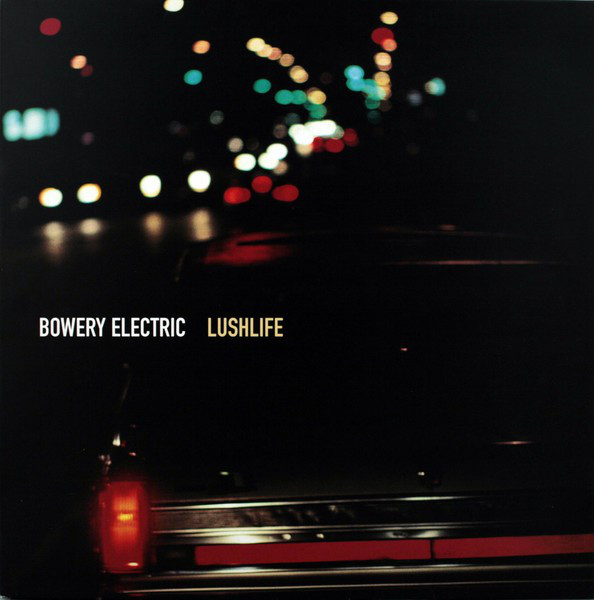 As someone who already reviewed Bowery Electric's third album 19 years ago, I can't discuss it now without recognizing the importance of their second album and the differences in the world where each existed. Whereas Beat was very much the right record at the right time, Lushlife, in hindsight, feels like the wrong record at the wrong time. What made the world listen to Beat was its seemingly effortless mastery of sound, structure, and songcraft. The group didn't follow a particular formula between tracks and it never felt as if they were obliged to reach for a hit single. Released originally in late 1996 on Kranky in the USA, it grabbed the attention of Beggars Banquet for a release in Europe followed by two remix 12" singles, a remix album, and worldwide distribution to the follow-up. While they may have not explicitly been tasked with the duty of creating a pop-breakthrough, Lushlife feels at times like Bowery Electric are aiming for it. The songs were certainly more consciously composed, lyrically dense, and the sounds on the whole were much more vibrant and stunning than previously. Martha's vocals are more pronounced and confident, the bass riffs are a thunderous force, the guitars are sublime, and the strings are gorgeous. The dominating backbone of the record is the hip-hop beats, which eventually becomes its weakness.
As someone who already reviewed Bowery Electric's third album 19 years ago, I can't discuss it now without recognizing the importance of their second album and the differences in the world where each existed. Whereas Beat was very much the right record at the right time, Lushlife, in hindsight, feels like the wrong record at the wrong time. What made the world listen to Beat was its seemingly effortless mastery of sound, structure, and songcraft. The group didn't follow a particular formula between tracks and it never felt as if they were obliged to reach for a hit single. Released originally in late 1996 on Kranky in the USA, it grabbed the attention of Beggars Banquet for a release in Europe followed by two remix 12" singles, a remix album, and worldwide distribution to the follow-up. While they may have not explicitly been tasked with the duty of creating a pop-breakthrough, Lushlife feels at times like Bowery Electric are aiming for it. The songs were certainly more consciously composed, lyrically dense, and the sounds on the whole were much more vibrant and stunning than previously. Martha's vocals are more pronounced and confident, the bass riffs are a thunderous force, the guitars are sublime, and the strings are gorgeous. The dominating backbone of the record is the hip-hop beats, which eventually becomes its weakness.
Beggars Archive
The socioeconomic climate of 1996 and 1997 was exceptionally beneficial for innovative arts and entertainment as the dot com boom was fueling both economic growth and increased worldwide connectivity. This was perfect for musicians who weren't able to find a voice through typical mainstream media or distribution through established channels, which were stubborn at the time to adapt. Morale was on the upswing, young people were optimistic, and independent music was reaching more listeners in more remote places. Post-rock was a recognized movement (or non-movement), divisions between styles were blurring, music festivals became more diverse, and listeners tastes were expanding. Beat was championed in the independent music press, Bowery Electric toured extensively, recorded a Peel Session, and, in the wake of the success, Martha Schwendener and Lawrence Chandler built a studio in Brooklyn and began work on Lushlife.
The first half—or side one of the record—is remarkably dark for an opening, with songs like "Floating World," the title track, the creepy "Psalms of Survival," and instrumental side closer "Soul City," all of which are mid-paced, sonically rich, and set in minor keys. Much like the cover suggests, it is like a breathtaking soundtrack to a lonely journey through a well-lit but empty city in the wee hours of the night.
The second half—or side two—is where the album loses me, however. Here is where the beats become distractive. After over three years from release of Beat, I wasn't ready to hear the overused "Funky Drummer" sample throughout "Saved" or the Eric B & Rakim loop (the one which made up every Milli Vanilli hit single along with countless others) on the closer "Passages." "Freedom Fighter," the album's single, used Jay-Z's beats, samples from Kraftwerk, and guitar from Nick Drake, who was widely played at the time, thanks to the popularity of the VW commercial (he sold more records in 1999 in the weeks following that commercial's debut than he did in his entire lifetime). It is worth noting this was no intention of the group to capitalize on this, as the album was complete before the commercial aired yet came out in the wake of its popularity.
Unfortunately, the timing wasn't working in the group's favor, as the album was released on February 28th of 2000, less than 2 weeks before the stock market crash on March 11th. While it may seem unrelated to the success of this album, the ripple effects couldn't be ignored. The crash brought the dot com boom to a screeching halt. Morale began on a downtrend and so did incomes: less money was floating around for arts and entertainment. The music industry was exceptionally vulnerable: as technology and connectivity continued to advance, the popularity of filesharing increased, and the major label industry lashed out at consumers. Stuck in the middle were the independent labels and stores which began to suffer, and within a very short while, the major record store chain, as we knew it, was extinct. After a European and South American tour, the duo returned to the US for a few performances but soon called it quits.
Lushlife is a good record but it doesn't make a lot of lists two decades later. I have listened to the record so many times in the last 20 years that writing about it is difficult, as my mind has changed so many times about the record. It still has fantastic songs which have stood up very well but I find my attention wandering halfway in. Plenty of care went into the reissue and the result is quite pleasing. The clarity and range of the sounds on the record are fantastic and the packaging is very faithful to the original UK-only LP. Furthermore, it is also now available at a reasonable price and no longer "collector prices." I would personally love to hear a version of the album stripped of side B's hip-hop samples or to hear the demos surface but am no longer holding my breath after all this time.
 
Read More
- Administrator
- Albums and Singles
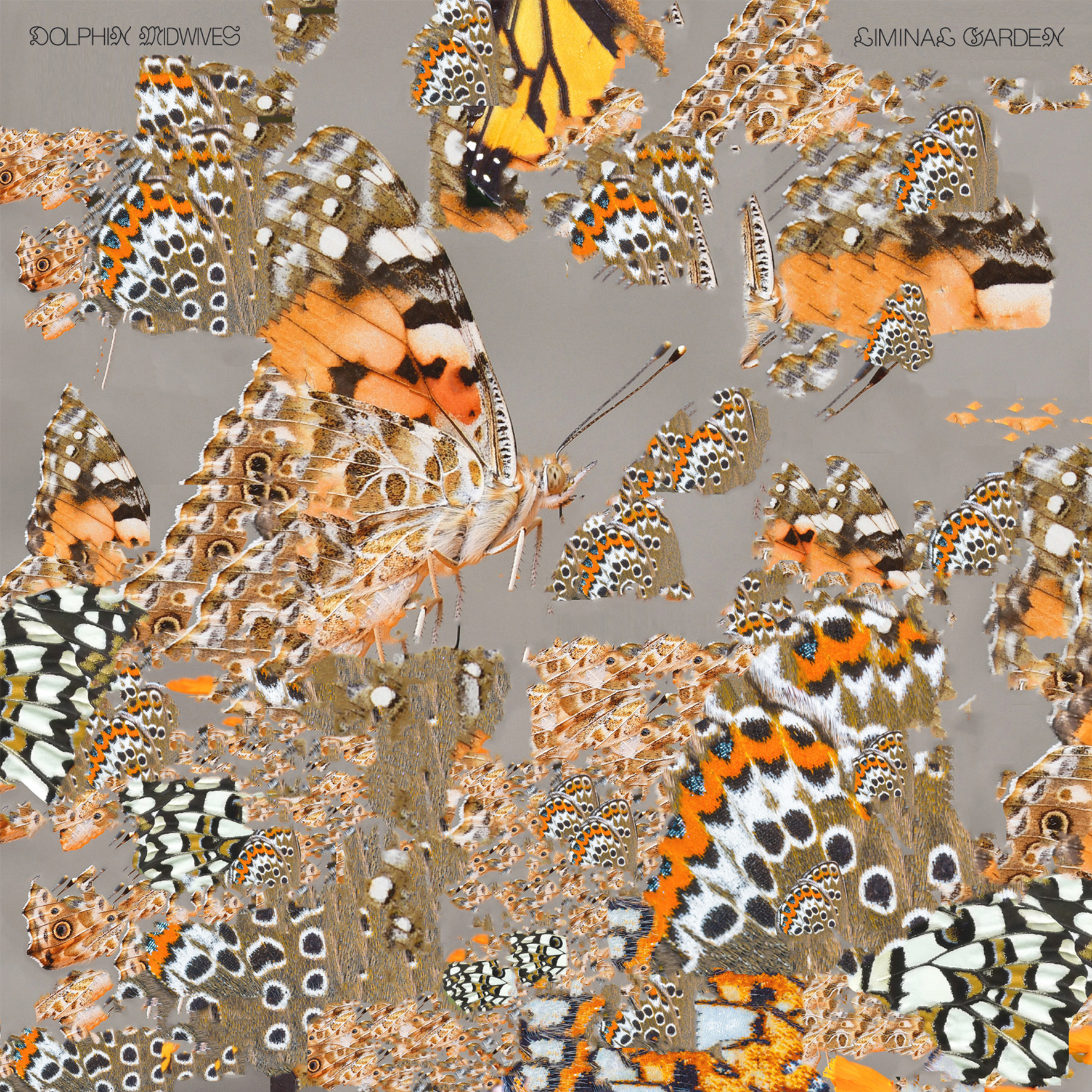 This is arguably the formal debut album from Portland harpist Sage Fisher, though she previously surfaced with a fine cassette (Orchid Fire) back in 2016. Liminal Garden is on a completely different level than its more homespun predecessor though. If someone had told me fifteen years ago that several of my favorite artists would be harpists in the not too distant future, I would probably have thought they were completely delusional, but the instrument has undergone quite an incredible renaissance since Joanna Newsom's early albums blew up. While it is probably too soon to tell whether the more mysticism-minded Fisher has definitively earned a place in the same illustrious pantheon as Newsom and Mary Lattimore, her inventive use of effects and processing here frequently transcends harpistry altogether and calls to mind some of the most iconoclastic laptop composers of the early twenty-first century (if they lived in a fairy tale-like crystal palace in an enchanted forest). This is a wonderful and unexpected gem.
This is arguably the formal debut album from Portland harpist Sage Fisher, though she previously surfaced with a fine cassette (Orchid Fire) back in 2016. Liminal Garden is on a completely different level than its more homespun predecessor though. If someone had told me fifteen years ago that several of my favorite artists would be harpists in the not too distant future, I would probably have thought they were completely delusional, but the instrument has undergone quite an incredible renaissance since Joanna Newsom's early albums blew up. While it is probably too soon to tell whether the more mysticism-minded Fisher has definitively earned a place in the same illustrious pantheon as Newsom and Mary Lattimore, her inventive use of effects and processing here frequently transcends harpistry altogether and calls to mind some of the most iconoclastic laptop composers of the early twenty-first century (if they lived in a fairy tale-like crystal palace in an enchanted forest). This is a wonderful and unexpected gem.
Sage Fisher is an quite a complex, curious, and inscrutable artist, as her "Druid high priestess" look and her self-description as a "portal opening reverberating witch sister" suggest that her work would share a lot of common ground with some of the more pagan-minded proponents of the largely dispersed and forgotten Freak Folk/New Weird America milieu.That would be just fine by me (as long as the album was good), as I remain a devout Fursaxa enthusiast and likely will be one forever.Fisher, however, takes that foundational sensibility in quite an unexpected direction, combining folk instrumentation, a deep connection with natural world, Hindu philosophy, and a fascination with geometry to yield something altogether her own.In fact, Liminal Garden almost feels perversely futuristic–like the kind of art a mysterious feminist revolutionary would be making in a William Gibson or Blade Runner-esque dystopia.Wielding a battery of pedals, Fisher frequently transforms her harp's tumbling arpeggios into an unrecognizably squirming and snarling electronic abstraction.In fact, on the most experimental pieces, such as the roiling and churning "Labyrinth I" or the chirping and bleeping "Iridesce," it is nearly impossible to discern that a harp was involved at all…at least, not from the sounds.From a compositional perspective, however, Fisher's choice of instrument seems to play an extremely crucial role in the shape her vision takes, as these ten pieces could all be roughly described as variations of gently hallucinatory soundscapes built from rippling lattices of notes.
Fisher sings sometimes as well, an occasion that yields two of the album's most strikingly beautiful pieces: "Grass Grow" and "Mirror."The former resembles kind of a time-stretched and smoky choral work punctuated by dense swells of exotic-sounding backwards melodies."Mirror" is even more gorgeous still, as Fisher unexpectedly sings an actual melody (with words!) amidst a swooning, fluttering, and cooing web of hazy vocal layers.For an artist this devoted to effects, processing, and experimentation, Fisher has a remarkably strong intuition for nuance and clarity, subtly embellishing the piece's simple motif with unpredictable disruptions and fitful glimpses of a glimmering descending harp melody. According to a recent interview with Self-Titled, "Mirror" is the album's most conceptually heavy and personal piece, as Fisher attempted to evoke the feeling of "being devoured by a gaze…looking in the mirror and seeing someone you weren’t expecting to see looking back."While I suppose that rightfully makes "Mirror" a strong contender for the album's centerpiece, it was actually the languorously lovely "Junglespell" that initially won me over to the album, as it unexpectedly blossoms into a passage of visceral, churning catharsis that recalls prime Tim Hecker.That is not something I would expect to encounter on an album by a harpist at all, yet Fisher makes it feel convincingly earned and authoritative.The following "Castleshell" pulls off a similarly inventive twist, as its pretty descending melody gradually becomes engulfed by layers of backwards countermelodies as it inexorably builds towards an increasingly heaving and vividly chaotic climax.
I once heard a yoga instructor liken culture to nutrition, explaining that what your mind ingests determines the quality of your words and thoughts.That might not sound especially profound on its face, but it stuck with me and recently popped into my head when I was reading about the esoteric inspiration behind some Richard Skelton albums: artists with deeply restless minds and unusual, far-reaching interests tend to make some of the most fascinating and unique art.Liminal Garden triggered the same thought, as I was struck by how many interesting and divergent directions Fisher was able to take with an instrument that I always felt was fairly limiting.In hindsight, I now grasp that a harp is only limiting if the player's influences are primarily other harpists.Fisher seems blissfully unaware of such perceived constraints herself, as her instrument is merely a tool for realizing a much more expansive and ambitious vision teeming with Cambodian ruins, mazes, seashells, tropical plants, Hindu mythology, and significant moments from her personal life.Of course, realizing that inspiration lurks everywhere is just one piece of the puzzle, as the execution of one's vision is every bit as important as the vision itself.Fortunately, Fisher completely nails it with Liminal Garden.Some credit is probably due to Rafael Anton Irisarri's mastering work, as these pieces feel vividly and vibrantly alive, but Fisher gave him one hell of an album to work with: I can find something to love about nearly every song here.Part of me admittedly wishes the album was a little longer, as it seems to go by too quickly, but that is a fool's wish.  Liminal Garden is already a focused and near-perfect statement that seems to only get better each time I listen to it.No sane person would tamper with that.
 
 
Read More
 As someone who already reviewed Bowery Electric's third album 19 years ago, I can't discuss it now without recognizing the importance of their second album and the differences in the world where each existed. Whereas Beat was very much the right record at the right time, Lushlife, in hindsight, feels like the wrong record at the wrong time. What made the world listen to Beat was its seemingly effortless mastery of sound, structure, and songcraft. The group didn't follow a particular formula between tracks and it never felt as if they were obliged to reach for a hit single. Released originally in late 1996 on Kranky in the USA, it grabbed the attention of Beggars Banquet for a release in Europe followed by two remix 12" singles, a remix album, and worldwide distribution to the follow-up. While they may have not explicitly been tasked with the duty of creating a pop-breakthrough, Lushlife feels at times like Bowery Electric are aiming for it. The songs were certainly more consciously composed, lyrically dense, and the sounds on the whole were much more vibrant and stunning than previously. Martha's vocals are more pronounced and confident, the bass riffs are a thunderous force, the guitars are sublime, and the strings are gorgeous. The dominating backbone of the record is the hip-hop beats, which eventually becomes its weakness.
As someone who already reviewed Bowery Electric's third album 19 years ago, I can't discuss it now without recognizing the importance of their second album and the differences in the world where each existed. Whereas Beat was very much the right record at the right time, Lushlife, in hindsight, feels like the wrong record at the wrong time. What made the world listen to Beat was its seemingly effortless mastery of sound, structure, and songcraft. The group didn't follow a particular formula between tracks and it never felt as if they were obliged to reach for a hit single. Released originally in late 1996 on Kranky in the USA, it grabbed the attention of Beggars Banquet for a release in Europe followed by two remix 12" singles, a remix album, and worldwide distribution to the follow-up. While they may have not explicitly been tasked with the duty of creating a pop-breakthrough, Lushlife feels at times like Bowery Electric are aiming for it. The songs were certainly more consciously composed, lyrically dense, and the sounds on the whole were much more vibrant and stunning than previously. Martha's vocals are more pronounced and confident, the bass riffs are a thunderous force, the guitars are sublime, and the strings are gorgeous. The dominating backbone of the record is the hip-hop beats, which eventually becomes its weakness.

